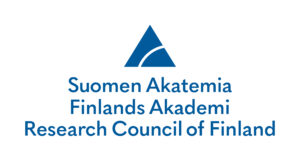Time
1.1.2024–31.12.2028
Project coordinator
Tampere University
Other partners
Funded by
Printed intelligence is a rapidly emerging field of technology, being a key enabler for next generation technology products such as flexible, thin, lightweight and cost- and resource-efficient electronics, as well as functional materials and devices for interfacing with biological systems. Printed Intelligence Infrastructure (PII) has been funded by Academy of Finland as a national research infrastructure since 2019 with initial partners from University of Oulu (UOULU), Tampere University (TAU) and VTT. PII provides a world-class research and development environment for researchers and technology developers in both academia and industry. It offers a modern research and pilot-manufacturing infrastructure covering the whole research/development path from (i) materials via (ii) functional printing, (iii) components and devices to (iv) circuits, systems and end-use demonstrators.
For the 2020 FIRI Roadmap call, ÅAU was included to incorporate all Finnish organizations in the scope of PII, thus covering all national active research units in this field: UOULU for electronics and photonics materials, TAU for future electronics, ÅAU for functional and biomaterial printing and VTT providing PrintoCent Pilot lines and process development facilities.
Åbo Akademi Functional Printing Center (ÅAFPC) was established in 2020 to coordinate and provide facilities and expertise for printing and surface engineering in support for interdisciplinary research and education activities within the Technologies for a Sustainable Future as well as the Solutions for Health strategic profiling areas at Åbo Akademi University. Of note, functional printing technologies has a strong base in Turku with the Center of Excellence in Functional Materials for Printed Intelligence (FunMat) running for 2008-13 (as funded by AoF) and 2015-18 (as funded by SÅA) that was coordinated by ÅAU. Recently, this activity has generated interest also within the other higher education institutions in the Turku area, with the result of the EU-funded Multicomponent Materials Centre of Expertise for Additive Manufacturing (MMAM) project running 2019-21 and the follow-up Centre for Additive Manufacturing for Life Science and Pharmaceutical Industry 2021-23 including also Turku University for applied sciences (TUAS) and University of Turku (UTU) and seven companies as partners. The Turku Innovation Centre of Additive Manufacturing (TICAM) was further established based on MMAM. End-use applications targeted by the researchers utilizing these facilities range from diagnostic systems, sensors and microfluidic devices to 3D-printed scaffolds for tissue engineering and personalized drug dosage applications.
The ÅAFPC instrumentation enables deposition of functional materials with 2D printers, additive manufacturing and biomaterial printing with 3D printers, and uniform and patterned surface creation with thin film coating apparatus. The printing and coating technologies are supported by instrumentation for rheological and surface characterization of functional materials. The focus of the FIRI infrastructure application at Åbo Akademi is to upgrade and enhance the current research equipment, with a specific emphasis on i) high-resolution fabrication of functional and intelligent interfaces in bioelectronics and biosensors; and ii) additive manufacturing of pharmaceuticals as well as bioprinting of 3D cell culture models and engineered tissues. The planned instrumentation includes processing tools for preparing customized precursor/ink materials, cutting-edge 2D/3D printing facilities, and nano- and micro-scale characterization of the printed devices and constructs as follows:
-A microfluidizer to aid the specification of nanostructured sustainable biopolymers for integration in building bioelectronic interfaces, pharmaceutical dosage forms, and bioink formulations.
-A unique high-precision capillary printing facility enabling fabrication of 2D metallic, dielectric, and semiconducting structures with unprecedented resolution at the 2D-3D interface. Highly suitable for interfacing bioelectronics and biosensor research with its integrated AFM.
-Module-interchangeable, extrusion-based Finnish Brinter supporting multi-material additive manufacturing in the advanced fabrication of pharmaceutical dosage forms and biomedical devices.
-Unique light-based tomographic volumetric printer, enabling non-disruptive and high-speed 3D bioprinting of cell-laden constructs and supporting front-runner research in tissue engineering and regenerative medicine.
-High-profile characterization tools, including an optical profilometer for broad topographical studies in conjunction to the existing AFM infra at ÅAU; and a mechanobiology nanoindenter platform to perform mechanosensing analysis with cell imaging and incubation in one platform.
-A part-time staff scientist to coordinate the acquisition and establishment of the new facilities at ÅAU, and to integrate the ÅAFPC service portal into the PII consortium service desk.
PII maintains an open usage policy, enabling all researchers to access the infrastructure, including those outside the infrastructure owner organizations. The details of the access policy and any associated fees will be jointly agreed upon with the PII partners.

Contact us
Martti Toivakka (Principal Investigator)
Professor
Laboratory of Natural Materials Technology
Tel. +358 405040689
Chunlin Xu
Professor
Laboratory of Natural Materials Technology
Tel. +358 440362088
Johan Bobacka
Professor
Laboratory of Molecular Science and Engineering
Tel. +358 469200208
Nicklas Anttu
Associate Professor (tenure track)
Physics
Tel. +358 504729151
Tan Phat Huynh
Associate Professor (tenure track)
Kemi och kemiteknik gemensamma
Tel. +358 504337295
Jouko Peltonen
Professor
Laboratory of Molecular Science and Engineering
Tel. +358 405052925
Carl-Eric Wilen
Professor
Laboratory of Molecular Science and Engineering
Tel. +358 504096406
